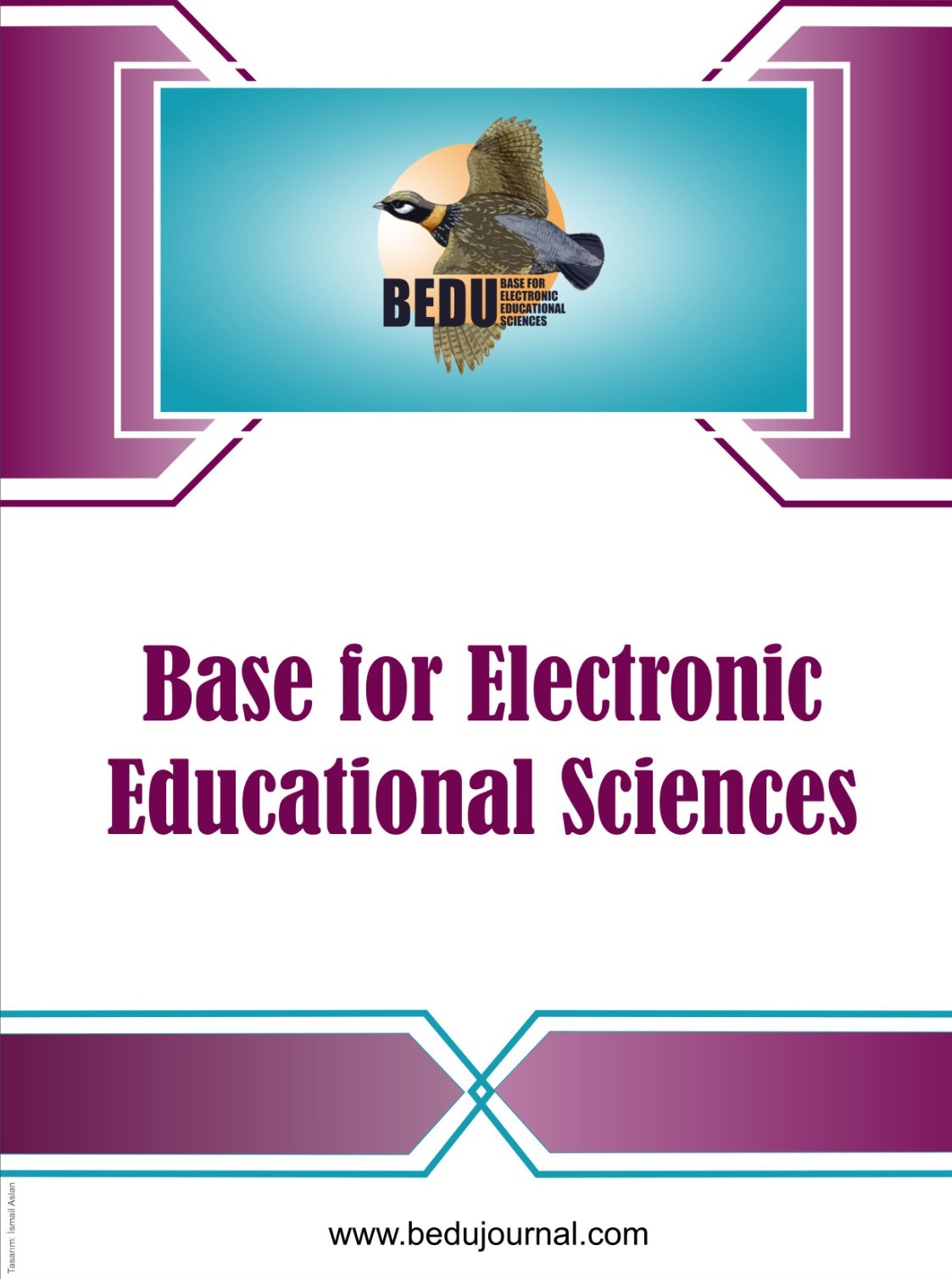Research article | Open Access
Base for Electronic Educational Sciences 2020, Vol. 1(1) 20-26
The Use of Assignments in Education
pp. 20 - 26 | DOI: https://doi.org/10.29329/bedu.2020.253.2
Publish Date: September 17, 2020 | Single/Total View: 1.000/1.108 | Single/Total Download: 1.291/2.556
Abstract
In all educational levels, teachers assign their students with different activities to practice and reinforce what they have learnt. Further, assignments are valuable educational tools that raise students' consciousness as believed by teachers, parents, and authorities. It functions, in a sense, a bridge between schools and homes. Assignments require the effort, time, and dedication of students, families, and teachers. Thus, it is crystal clear that assignments are practical tools to develop communicative skills and provide learning experiences in order to achieve the needed behavior change. Thus, the purpose of this paper is to examine the views of state primary school students on the assignments given by their teachers. The participants of the study were chosen from the most convenient and accessible schools located in Adana, Turkey. The sample consisted of 250 primary school students (178 female and 72 male) who voluntarily participated in the study. Based upon a qualitative research design, a semi-structured interview designed by the researcher was utilized in order to attain the required data. Therefore, based on a descriptive research design, this study involved the data analysis of descriptive statistics (SPSS 22.0) in order to report the views of participants in numerical data. The findings of the study suggest that assignments are favored by the students, which may be attributed to their school level.
Keywords: Assignment, education, reinforcement, learning, revision
APA 7th edition
Ulum, O.G. (2020). The Use of Assignments in Education. Base for Electronic Educational Sciences, 1(1), 20-26. https://doi.org/10.29329/bedu.2020.253.2
Harvard
Ulum, O. (2020). The Use of Assignments in Education. Base for Electronic Educational Sciences, 1(1), pp. 20-26.
Chicago 16th edition
Ulum, Omer Gokhan (2020). "The Use of Assignments in Education". Base for Electronic Educational Sciences 1 (1):20-26. https://doi.org/10.29329/bedu.2020.253.2
Ala-Mutka, K. M. (2005). A survey of automated assessment approaches for programming assignments. Computer science education, 15(2), 83-102.
Babadoğan, C. (1990). Ev ödevlerinin eğitim programı içindeki yeri [The place of homework in the education program]. Ankara University Journal of Educational Sciences, 23(2), 745-767. https://doi.org/10.1501/Egifak_0000000783
Baltaoğlu, M. G., Sucuoğlu, H., & Öztürk, N. (2017). Classroom teachers’ opinions about homeworks. Journal of Education and Future, 11, 95-109.
Blazer, C. (2009). Homework. literature review. Research Services, Miami-Dade County. Public Schools. Retreived on the 22nd of June, 2020 from https://eric.ed.gov/?id=ED536245
Bempechat, J. (2019). The case for (quality) homework: Why it improves learning, and how parents can help. Education Next, 19(1), 36-44.
Boctor, L. (2013). Active-learning strategies: The use of a game to reinforce learning in nursing education. A case study. Nurse education in practice, 13(2), 96-100.
Chaiklin, S. (2003). The zone of proximal development in Vygotsky’s analysis of learning and instruction.Vygotsky’s educational theory in cultural context. Cambridge: Cambridge University Press.
Cooper, H. (1989). Synthesis of research on homework. Educational leadership, 47(3), 85-91.
Cooper, H. M., & Gersten, R. M. (2003). Homework tips for parents. US Department of Education, Educational Partnerships and Family Involvement Unit. Jessup, MD: Education Publications Center.
Cooper, H., Robinson, J. C., & Patall, E. A. (2006). Does homework improve academic achievement? A synthesis of research, 1987–2003. Review of educational research, 76(1), 1-62.
Darling-Hammond, L., & Sykes, G. (2003). Wanted, a national teacher supply policy for education: The right way to meet the" highly qualified teacher" challenge. Education Policy Analysis Archives, 11(33).
Dawson, P. (2009). Homework: A guide for parents. Communique, 38(1), 26-28.
Deveci, İ., & Onder, I. (2013). The Students' Views Related to the Given Homeworks in the Science and Technology Courses: A Qualitative Study. US-China Education Review, 3(1), 1-9.
Ektem, I. S., & Yıldız, S. B. (2017). İngilizce ev ödevlerine yönelik öğretmen görüşleri [Teacher views about english homework]. Çukurova Üniversitesi Sosyal Bilimler Enstitüsü Dergisi, 26(3), 78-91.
Enhancing Student Learning. (2006). All about homework. Retreived on the 18th of January, 2015 from ped.state.nm.us/Parents/dl09/ft_mod3.pdf
Eshach, H. (2007). Bridging in-school and out-of-school learning: Formal, non-formal, and informal education. Journal of science education and technology, 16(2), 171-190.
Halici Page, M., & Mede, E. (2018). Comparing task-based instruction and traditional instruction on task engagement and vocabulary development in secondary language education. The Journal of Educational Research, 111(3), 371-381.
Kapikiran, Ş., & Kiran, H. (1999). Ev ödevinin öğrencinin akademik başarisina etkisi [The effect of the homevvork on the student'sacademic success]. Pamukkale University Journal of Education, 5(5), 54-60.
Kember, D. (2004). Interpreting student workload and the factors which shape students' perceptions of their workload. Studies in higher education, 29(2), 165-184.
Koohang, A., & Durante, A. (2003). Learners’ perceptions toward the web-based distance learning activities/assignments portion of an undergraduate hybrid instructional model. Journal of Information Technology Education: Research, 2(1), 105-113.
LeCourt, D. (1998). Critical pedagogy in the computer classroom: Politicizing the writing space. Computers and composition, 15(3), 275-295.
Li, T., & Xiao, J. (2019). Evaluation of chinese homework in primary school: connotation, problems and strategies. US-China Education Review, 9(6), 187-192.
McDonald, M. A. (2008). The pedagogy of assignments in social justice teacher education. Equity & Excellence in Education, 41(2), 151-167.
Ok, M., & Çalışkan, M. (2019). Ev Ödevleri: Öğretmen, öğrenci ve veli görüşleri [Homework: Opinions of teachers, students and parents]. OPUS– International Journal of Society Researches, 11(18), 594-620.
Protheroe, N. (2009). Good homework policy. Principal, 89(1), 42-45.
Reid, M. J., Webster-Stratton, C., & Beauchaine, T. P. (2001). Parent training in Head Start: A comparison of program response among African American, Asian American, Caucasian, and Hispanic mothers. Prevention Science, 2(4), 209-227.
Soylu, C., & Topaloğlu, C. (2015). Bilişsel davranışçı terapide ev ödevi uygulamaları. Current Approaches in Psychiatry, 7(3).
Vygotsky, L. S. (1987). The collected works of LS Vygotsky: the fundamentals of defectology (Vol. 2). London: Springer Science & Business Media.
